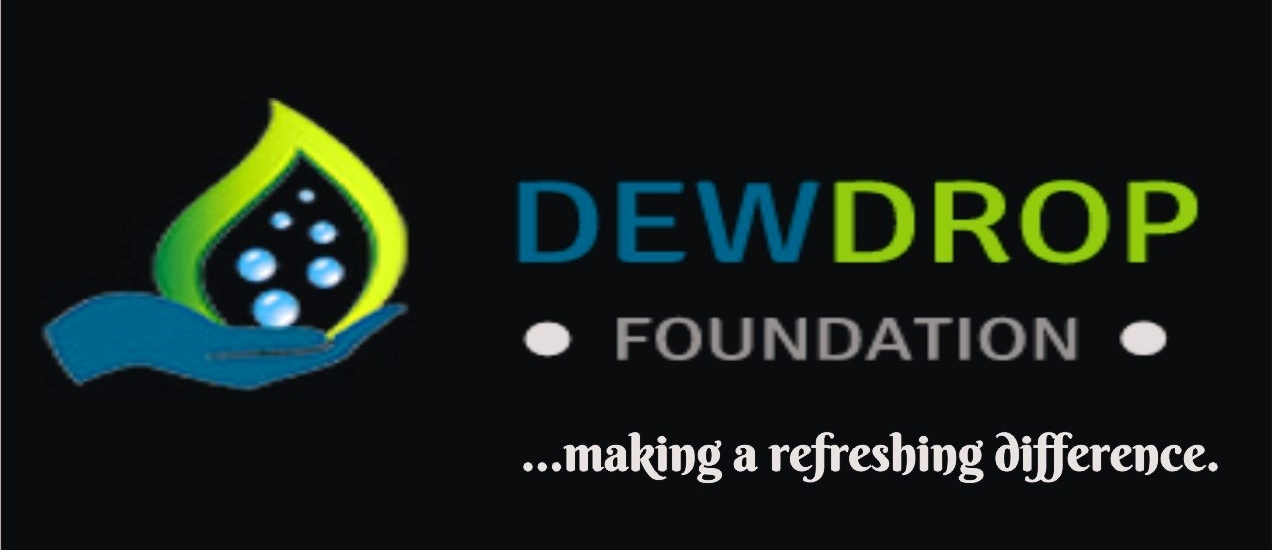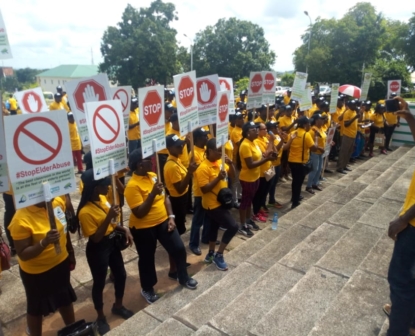Project
Stop elderly abuse
-
Amount Funded
200,000 EUROProject Duration
01 Jul 2019 - 31 Dec 2020 -
-
Lead organisation
-
The Dewdrop Foundation (DDF) is a non-profit organisation established in 2002. The overall goal is to improve the livelihoods of vulnerable groups in society, especially in rural communities, by enhancing their capacity to fight for their rights; and engage in enterprises that guarantee them sustainable livelihoods.
The primary focus is to develop and implement customised sustainable life-long learnership programmes for effective capacity strengthening at grassroots levels, creating job opportunities, and empowering women and youth to become independent entrepreneurs. These objectives have been achieved over the years through community development and skills acquisition programmes aimed at domestic workers, teachers, community leaders, women organisations, healthcare service providers and other hospitality service providers. The foundation also mitigates the ills of domestic child servitude (also known as modern day slavery) and internal child trafficking through advocacy for the survivors.
-
Organisation
The Dewdrop Foundation (DDF) is a non-profit organisation established in 2002. The overall goal is to improve the livelihoods of vulnerable groups in society, especially in rural communities, by enhancing their capacity to fight for their rights; and engage in enterprises that guarantee them sustainable livelihoods.
The primary focus is to develop and implement customised sustainable life-long learnership programmes for effective capacity strengthening at grassroots levels, creating job opportunities, and empowering women and youth to become independent entrepreneurs. These objectives have been achieved over the years through community development and skills acquisition programmes aimed at domestic workers, teachers, community leaders, women organisations, healthcare service providers and other hospitality service providers. The foundation also mitigates the ills of domestic child servitude (also known as modern day slavery) and internal child trafficking through advocacy for the survivors.
-
Project
In Nigeria, elderly persons suffering from age-related diseases such as Alzheimer#s Disease (AD) are misconstrued as mad persons and #witches# due to their mental disability. Elderly persons are often neglected and kept away from the public by family members for fear of being ostracized from their communities due to age-old superstitions and cultural beliefs arising from basic ignorance. This has led to elderly people being tortured and suffering untold abuse without recourse because they have #no voice#.
Unverified stories and various studies indicate that elderly abuse is prevalent in Nigeria, however, the rate is unknown. One study conducted in Akwa Ibom State, Nigeria, reported a high prevalence of elder abuse, where 46.7% of elders complained of medical neglect and bedsores; 47% experienced some form of physical abuse; 44.7% reported lack of visitation; 49% were uncomfortable with their living conditions; and 35% were victims of theft. Another study among elders in Enugu State, Nigeria, documented a high prevalence of denial of freedom of interaction (88%) and verbal abuse (73%).
Recently there has been much discussion in Nigeria of how the population is ageing. Elderly persons in Nigeria face multiple challenges because of decreased functional independence. However, there has been no attention to their experiences. Clearly, there is a need to understand the experiences of elderly persons and address their issues.
A result of the empowerment grant that Dewdrop Foundation implemented as part of the Umuode Community revealed the critical need to sensitise the public on how to care for elderly persons, and their common ailments such as sight and hearing impairment, memory loss/Dementia, and Alzheimer#s. Elderly people become naturally more vulnerable to verbal and physical abuse by ignorant people as they become progressively afflicted by these age-related challenges, especially in villages and local communities. Caregivers and family members who desire to protect their loved ones lack capacity thus need guidance and a support structure.
This project therefore aims to develop law reform and policy solutions that address the pressing barriers to the well-being of Elderly people. Surveys/research are conducted to ascertain the degree of this issue in up to ten pilot communities in Nkanu-land Local Government Areas of Enugu State, and publicise its results. The foundation uses artwork, music and drama to ensure that voices of Elderly persons especially those living with AD are amplified nation-wide, starting from the pilot communities in Enugu State.
The ultimate goal is to enrich lives of elderly persons through a platform that enables them to have a voice and lead their cause, have access to social amenities, provide capacity strengthening opportunities for their Caregivers, and bring together key players who champion their cause and sustain the program in the pilot communities.
-
-
In Nigeria, elderly persons suffering from age-related diseases such as Alzheimer#s Disease (AD) are misconstrued as mad persons and #witches# due to their mental disability. Elderly persons are often neglected and kept away from the public by family members for fear of being ostracized from their communities due to age-old superstitions and cultural beliefs arising from basic ignorance. This has led to elderly people being tortured and suffering untold abuse without recourse because they have #no voice#.
Unverified stories and various studies indicate that elderly abuse is prevalent in Nigeria, however, the rate is unknown. One study conducted in Akwa Ibom State, Nigeria, reported a high prevalence of elder abuse, where 46.7% of elders complained of medical neglect and bedsores; 47% experienced some form of physical abuse; 44.7% reported lack of visitation; 49% were uncomfortable with their living conditions; and 35% were victims of theft. Another study among elders in Enugu State, Nigeria, documented a high prevalence of denial of freedom of interaction (88%) and verbal abuse (73%).
Recently there has been much discussion in Nigeria of how the population is ageing. Elderly persons in Nigeria face multiple challenges because of decreased functional independence. However, there has been no attention to their experiences. Clearly, there is a need to understand the experiences of elderly persons and address their issues.
A result of the empowerment grant that Dewdrop Foundation implemented as part of the Umuode Community revealed the critical need to sensitise the public on how to care for elderly persons, and their common ailments such as sight and hearing impairment, memory loss/Dementia, and Alzheimer#s. Elderly people become naturally more vulnerable to verbal and physical abuse by ignorant people as they become progressively afflicted by these age-related challenges, especially in villages and local communities. Caregivers and family members who desire to protect their loved ones lack capacity thus need guidance and a support structure.
This project therefore aims to develop law reform and policy solutions that address the pressing barriers to the well-being of Elderly people. Surveys/research are conducted to ascertain the degree of this issue in up to ten pilot communities in Nkanu-land Local Government Areas of Enugu State, and publicise its results. The foundation uses artwork, music and drama to ensure that voices of Elderly persons especially those living with AD are amplified nation-wide, starting from the pilot communities in Enugu State.
The ultimate goal is to enrich lives of elderly persons through a platform that enables them to have a voice and lead their cause, have access to social amenities, provide capacity strengthening opportunities for their Caregivers, and bring together key players who champion their cause and sustain the program in the pilot communities.
- News




